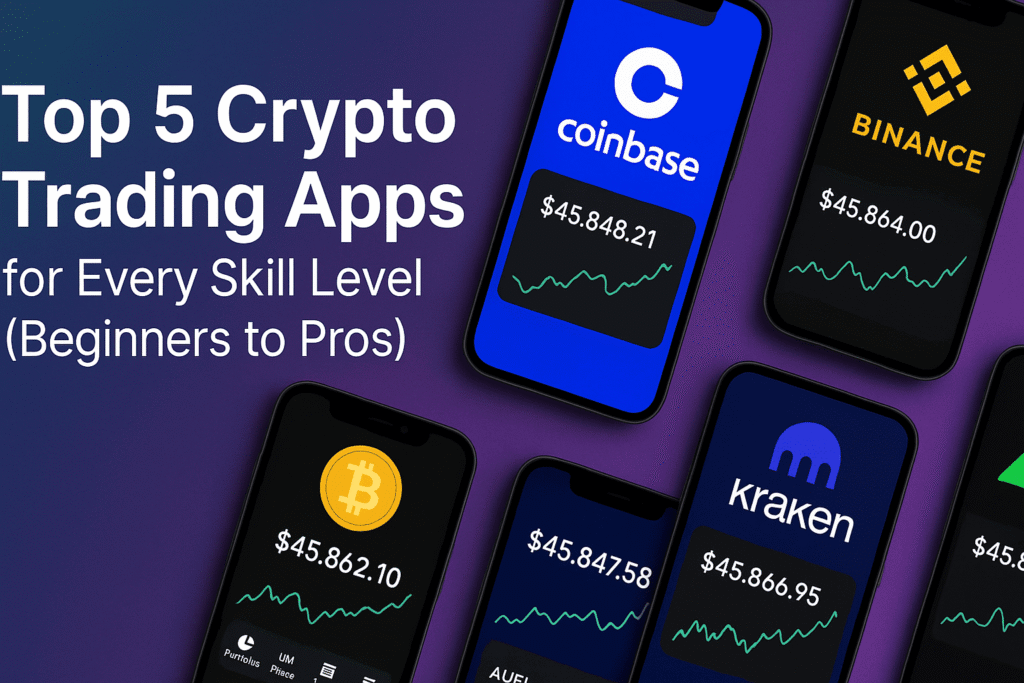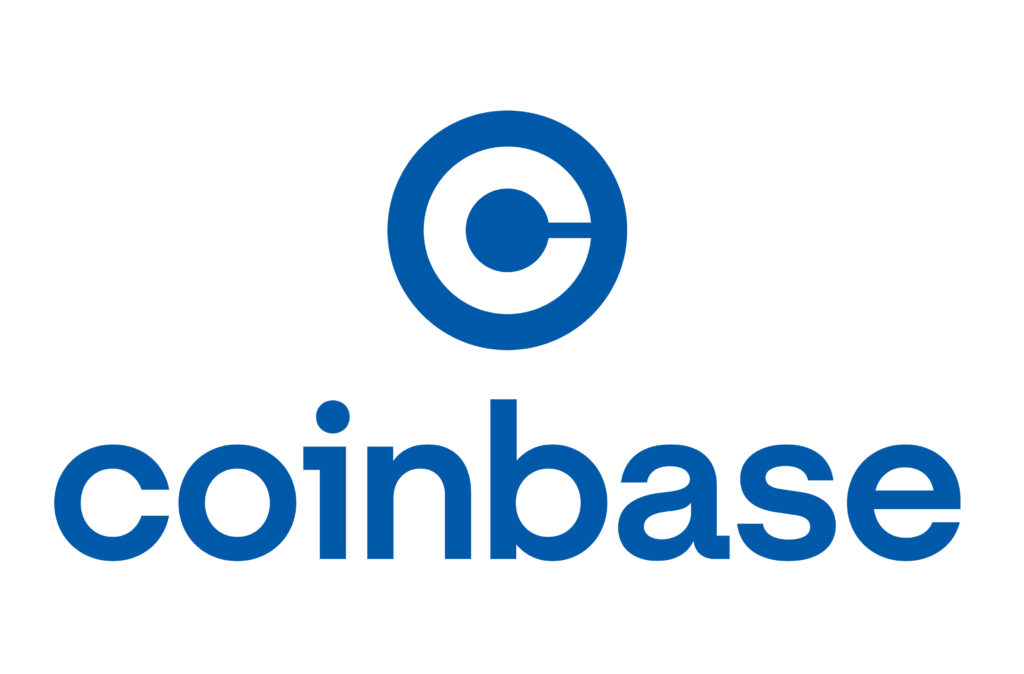Top 5 Crypto Trading Apps for Every Skill Level (Beginners to Pros)

Diving into the world of crypto trading can feel like stepping into a vast ocean without a compass. Whether you’re a total newbie trying to make sense of Bitcoin and Ethereum or a seasoned pro hunting for the next big trade, the right app can make all the difference. Today, I’m breaking down the top 5 crypto trading apps that suit every skill level — from beginners just testing the waters to pros ready to dive deep.
Why Choosing the Right Crypto Trading App Matters
Before you jump into crypto trading headfirst, the app you pick can either make your experience smooth and profitable or frustrating and risky. Think about it like choosing a car — a beginner might want something easy to drive, while a pro might want a performance vehicle with all the bells and whistles.
The Role of User Interface
Nothing kills trading enthusiasm faster than a confusing, cluttered app. If you’re new, you want a clean interface that explains things clearly. Pros, on the other hand, want powerful charts, multiple order types, and lightning-fast execution. The right interface tailored to your skill level can improve your decision-making dramatically.
Security Features You Can’t Ignore
Crypto is digital gold, and with that comes risk. Top apps invest heavily in security measures like cold storage, two-factor authentication, and encryption. Make sure your app has a solid reputation for protecting your funds.
Fees and Trading Costs
Trading fees vary widely between apps. Some charge per trade, others use spreads or withdrawal fees. For small trades, fees can eat into your profits, so pick an app whose fee structure fits your trading frequency and style.
Variety of Coins and Tokens Available
If you want to stick with Bitcoin and Ethereum, most apps will cover that. But if you’re into niche altcoins, DeFi tokens, or NFTs, check which platforms list them. This can influence your choice depending on how broad your portfolio goals are.
What to Look for Based on Your Skill Level
Your experience with crypto trading should guide your app choice.
Beginners: Simplicity and Learning Tools
Beginners need straightforward apps that offer clear buy/sell options, easy account setup, and tutorials or educational content. Apps like Coinbase shine here by making crypto trading accessible without overwhelming jargon.
Intermediate Traders: More Features and Flexibility
Once you’ve got the basics, you’ll want apps that offer limit orders, stop losses, margin trading, and a larger selection of coins. You’ll appreciate apps that provide some charting tools and analysis but still keep usability high.
Pros: Advanced Charting and Trading Options
Pro traders demand real-time data, deep order books, complex order types (like OCO orders), API access, futures, and options trading. Plus, they want customizable interfaces and integrations with external trading bots or software.
The Top 5 Crypto Trading Apps Reviewed
1. Coinbase — Best for Beginners and Simplicity

Key Features:
- User-friendly interface
- Easy fiat on-ramp (bank transfers, cards)
- Educational resources and rewards
- High liquidity and reliability
Pros:
- Simple to use, perfect for newbies
- Regulated and trusted in many countries
- Supports staking for passive income
Cons:
- Higher fees compared to some competitors
- Limited advanced trading features
Why it’s great for beginners: Coinbase is like the “Amazon” of crypto apps for new users — smooth, reliable, and packed with helpful tips. You don’t get overwhelmed with options but still have access to popular coins.
Official Website – Coinbase
2. Binance — Best for Intermediate to Advanced Traders

Key Features:
- Wide variety of cryptocurrencies
- Advanced charting and order types
- Low trading fees
- Futures and margin trading
Pros:
- Huge coin selection (1000+ tokens)
- Powerful trading tools and analytics
- Competitive fees
Cons:
- Interface can be complex for beginners
- Regulatory issues in some countries
Why it’s great for intermediates and pros: Binance offers serious muscle for traders ready to explore beyond the basics, combining low costs with an expansive ecosystem.
3. Kraken — Best for Security-Conscious Users

Key Features:
- Industry-leading security protocols
- Transparent proof-of-reserves audits
- Fiat deposits and withdrawals
- Advanced order types and futures
Pros:
- One of the safest and most respected exchanges
- Great customer support
- Good mix of beginner-friendly and advanced tools
Cons:
- Slightly slower verification process
- Trading fees can be higher for smaller accounts
Why it’s great for security: Kraken puts your funds first. If security and compliance matter to you, Kraken’s the app to trust.
4. eToro — Best for Social Trading and Copy Trading

Key Features:
- Social network style interface
- Copy trades from successful investors
- Supports stocks and crypto in one app
- User-friendly with educational content
Pros:
- Unique social trading experience
- Great for beginners wanting to learn from pros
- Regulated globally
Cons:
- Higher spreads on crypto trades
- Limited advanced trading features
Why it’s great for social traders: If you want to learn by watching and copying expert traders, eToro’s social features shine. It’s also excellent for those looking to diversify between stocks and crypto.
5. Crypto.com — Best for All-Rounder with Extras

Key Features:
- Wide crypto selection and DeFi integration
- Crypto Visa card for spending rewards
- Earn interest with staking and lending
- Advanced trading platform (Crypto.com Exchange)
Pros:
- Great ecosystem with mobile app and exchange
- Rewards and cashback on spending crypto
- Competitive fees and promotions
Cons:
- Interface might be overwhelming for absolute beginners
- Customer support can be slow at times
Why it’s great for all-rounders: Crypto.com fits well if you want to do more than trade — earn interest, spend crypto, and enjoy a full crypto lifestyle in one app.
👉 Coinbase vs Robinhood vs BitGlide: Best U.S. Crypto Trading App Face-Off
How to Choose the Best Crypto Trading App for You

Identify Your Trading Style
Are you a buy-and-hold investor, a day trader, or a casual user? Knowing your style helps narrow down the app with features that fit you.
Try Demo Accounts or Simulators
Many apps offer demo or paper trading modes — test them out to get a feel for their interface and tools without risking real money.
Consider Mobile vs Desktop Use
Will you trade mostly on the go or from your computer? Some apps have more robust desktop platforms, while others excel on mobile.
Tips for Safe Crypto Trading on Apps

Enable Two-Factor Authentication (2FA)
Always use 2FA to add an extra layer of security beyond just your password.
Use Strong, Unique Passwords
Don’t reuse passwords across platforms; use a password manager if needed.
Beware of Phishing and Scams
Never click suspicious links or give your credentials to anyone. Official apps never ask for private keys.
Final Thoughts: Matching Your Needs to the Right App
There’s no one-size-fits-all when it comes to crypto trading apps. Whether you’re just getting started or you’re an experienced trader, the right app can make your crypto journey easier, safer, and more enjoyable.
Start by defining what you want out of crypto trading — simplicity, advanced tools, social features, or security. Then pick an app that aligns with your goals and skill level. Remember, you can always try multiple apps before settling on your favorite.
Happy trading!
FAQs
1. Which crypto trading app is best for beginners?
Coinbase is often recommended for beginners due to its easy-to-use interface and educational resources.
2. Are crypto trading apps safe to use?
Yes, but it depends on the app. Choose apps with strong security protocols like Kraken and Binance, and always enable two-factor authentication.
3. Can I trade on multiple apps at the same time?
Absolutely! Many traders use different apps for different needs — such as one for quick trades and another for long-term holdings.
4. What fees should I watch out for?
Look for trading fees, withdrawal fees, and deposit fees. Also consider spreads (the difference between buy and sell prices).
5. Is it better to trade on mobile or desktop?
Both have pros and cons. Mobile offers convenience on the go, while desktop platforms usually provide more advanced tools and easier analysis.
Please don’t forget to leave a review.

One Comment